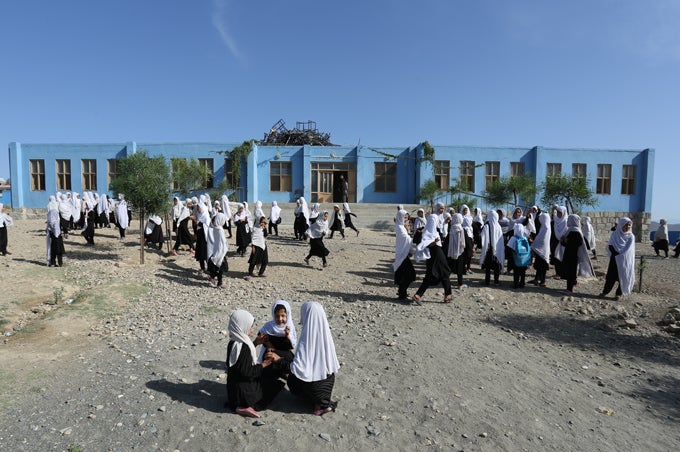
Today, January 24, we’re celebrating the International Day of Education after a unanimous UN resolution recognized last December the pivotal role of education for peace and development.
The International Day of Education not only calls attention to education as a key goal in the UN 2030 Agenda for Sustainable Development, but also highlights the role education plays in eradicating poverty, improving public health, promoting gender equality, and building peace worldwide.
There's no doubt that effective learning builds the human capital necessary for sustained long-term growth .
And by dedicating a global day to education, the international community has shown its determination to support inclusive, equitable, and quality education for all .
As Deputy Minister of Education in Afghanistan, I am pleased to see education on top of the international agenda and that its contribution to peace and development is now being recognized .
For Afghanistan, this recognition is crucial as the country faces the challenge of overcoming the devastating effects of decades of conflict and instability.
For us, education is the bedrock for peace and a more resilient and self-sufficient Afghanistan.
On a recent trip to southeastern Paktika Province, one of Afghanistan’s least developed provinces, a wise resident spoke to me earnestly about the dire need for educational opportunities in his community.
“We need irrigation canals, electricity, and health care services,” he said. “But please first provide educational services for us and reform the system because only then will the next generation be able to build the roads, bridges, and health care services that we need here in Paktika.”
While access to education is critical to sustaining Afghanistan’s development, countless schools continue to close, and many Afghan children are unable to go to school.
Just last year, thousands of schools across Afghanistan continued to be closed because of insecurity, which prevents school-age children from attending school.
Other factors are also preventing children from receiving a quality education: funding deficits, unavailability of school facilities, difficult geography, staff shortages, resource scarcity, and also the rare cultural challenge.
Fortunately, 200 to 300 of these schools have since re-opened this year, but the rest still remain closed .

With the support of the World Bank, Afghanistan Reconstruction Trust Fund (ARTF), and Global Partnership for Education (GPE), the Ministry of Education (MoE) has made it a priority to increase access to education for all.
To achieve that, MoE will rely on the EQRA (education) project to build 2,700 schools over five years in partnership with the Citizens’ Charter Afghanistan Project and train teachers through mentoring and professional development initiatives.
Also central to EQRA is to help girls better access educational services and support critical reforms in the areas of education governance and service delivery.
The public support for education is increasing and MoE encourages innovative models and public and civil society support. For example, we are promoting the example of a boarding school for girl students that sponsors a group of two or three girls from each Afghan province to attend and receive a dedicated and high-quality education from an all-female staff.
When a Mawlawi (religious scholar) from an insecure district in southern Ghazni Province heard about this initiative, he was skeptical and wanted to oppose this initiative, but once he saw the school, he allowed his two daughters to attend this school.
True, reforming education entails that children can benefit from adequate learning facilities, books and pencils, and qualified teachers.
But this effort also needs a support network and champions.
By gaining education supporters in local communities across Afghanistan, we win allies who will help, encourage, and support the young and future generations to pursue an education and a brighter future.
By improving our national education system, our students will have the opportunity to be enlightened and gain complex skills , such as critical thinking, that will best prepare them to face future challenges.
And while previous generations fought for peace, it will be up to today’s children to build and lead our society in the future.
And only a strong education can equip and inspire the leaders of tomorrow to create a just, sustainable, and prosperous country for all Afghans .

Join the Conversation